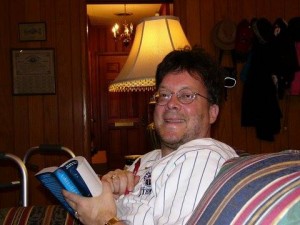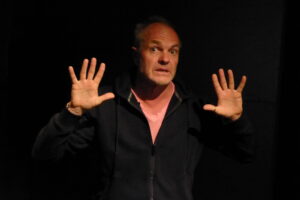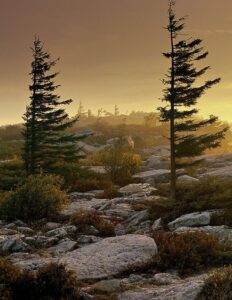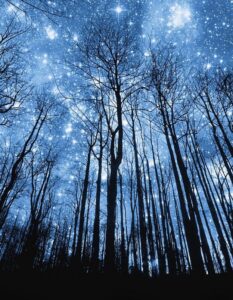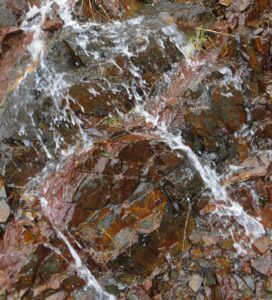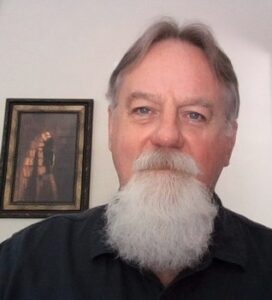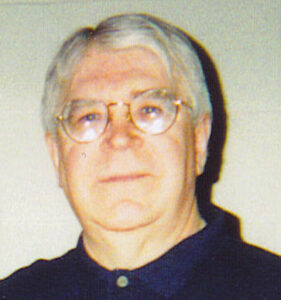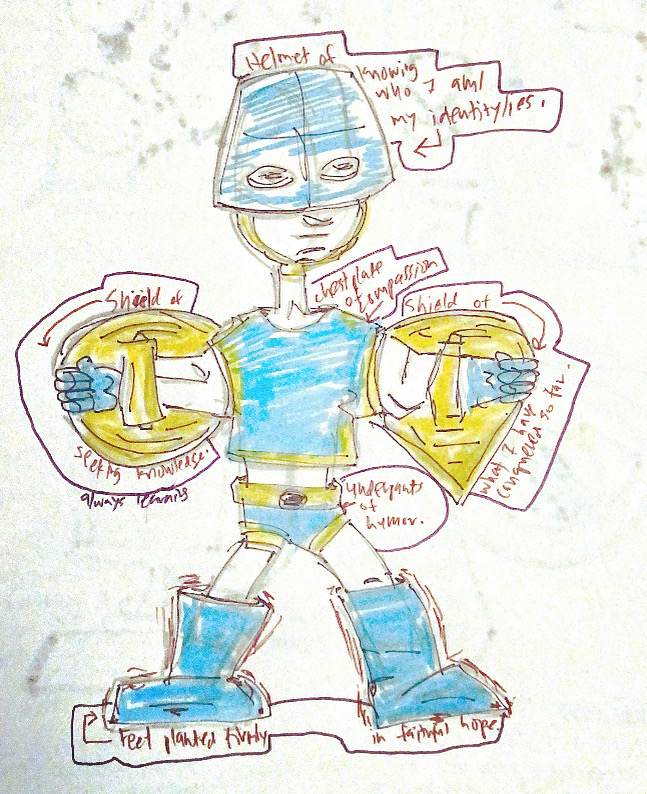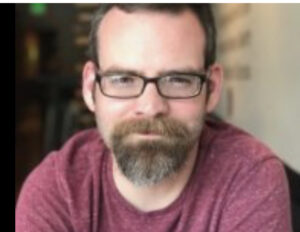She's just another cigarette burn on a corpse of curse and whim. No motivation moves her defeat where these creased sheets lie limbless; here, where the duvet drowns her in a white waterproof way, so even shit smears and wet legs cannot heave her fat ass out. She is burdened by streaks of day- light, as its plight peeps through blacked-out stains of yesterday. The dust makes magic with dirt, paving paths that split odours of sweat and stale skin in thickets of resentment stretched across her house. Among chores as monosyllabic as death, she must make merry with the shapes of hate that birth themselves between burnt toast and cups of cold coffee, while her eyelids fade with fifty shades of depression. Ousted from the forgotten confines of her warm farewells, those that berate her bones into disabled dreams that fuck her future into single slots of 24 hour refrains... she yearns to return there so she might not live again. Young poem in a backless dress. She tacks moon-crooned songs to the inside of her sighs, strumming sorrow between leaking lashes, that look down on her stone-built soul, so she can be micro-bodies of words without names, anchored to mastectomies by hung shoulders and her mammogram muse. Her fear is fierce and shoots sparks— those little orange daggers, that dare to settle along her cries. But she is stuttering again and the forty-something years she wearily wears lie down like corpses in her fading hair. She is burned wishes and bending headstones that sing of regret in ancient cemeteries, while doctors decide if geographical brilliance will bestow her the beauty…of life. Its enigma is enormous, she says, while you stitch stigmata to my skin, in a suicide of seasons that pockmark these absent breasts; I sit high in sanity’s open-topped coffins while society forces me to frame fat between my bones, and begs me to break blames, like sacrificial bread along a vertebra of my own voice and all the while, this unblinking death prefers me to be human as I hum sonatas through the cruelty of cancer’s callous aim. I captured you Caernarfon, but we can't claw it back. i. I have crawled along castle walls for us, grown beside you like the shiver to your fears-- your fading fears, becoming bright flames amidst a season of my shadows, but all the while, you've been welded to a whole web of lightning bolts laced across my night skies, climbing ruined rungs of life's ladder without me, until all colour is gone and I am phased back into the nothingness between your exhales. ii. I am several small skulls stitched tightly to surround your lack of conscience... mere split hairs many moons long that lie limply across the ice-mountains of my cries. Your retreating shoulders beat blame like torrential rain inside goodbyes and my thighs thrum ballads without you. iii. You have been the wheels that moved me-- those I love yous yelling life into such terrible stains while I rotated my spines around an absence of blackmail: I didn't pay you to make mud with my ever-evolving earth, nor did I birth miracles from three decades of my wounds; but still, you rolled down from my teeth to tell of genuine worth. iv. You have made me untouchable again, with universal agonies aerating from my sins...and everything we caught together as cliché has revealed itself conditional-- when I bleed, you opt to be my past, vampiring emotions with the burning of words, ones I struggled to believe in anyway... because actions belied them in every yellow light. v. I want infant incantations to inter themselves inside my sharks, so veins can voice me gilded, woven into incessant storms we should never survive, while I bewitch us both begotten along tainted turrets of this body's grieving ghosts. © Laura Lamarca, All Rights Reserved.
Laura Lamarca is a 48-year old professional poet who currently resides in Brighton and Hove, UK. She’s the author of 5 books of poetry, including a series titled “Memoirs of a Messed-Up Mum” published by Close to the Bone Publications. Lamarca is a psychic medium, Demonologist and Modern Exorcist who now writes poetry in her spare time. She says that poetry is her “exhale” and a means to release pent-up emotions in a safe and sustainable way.




